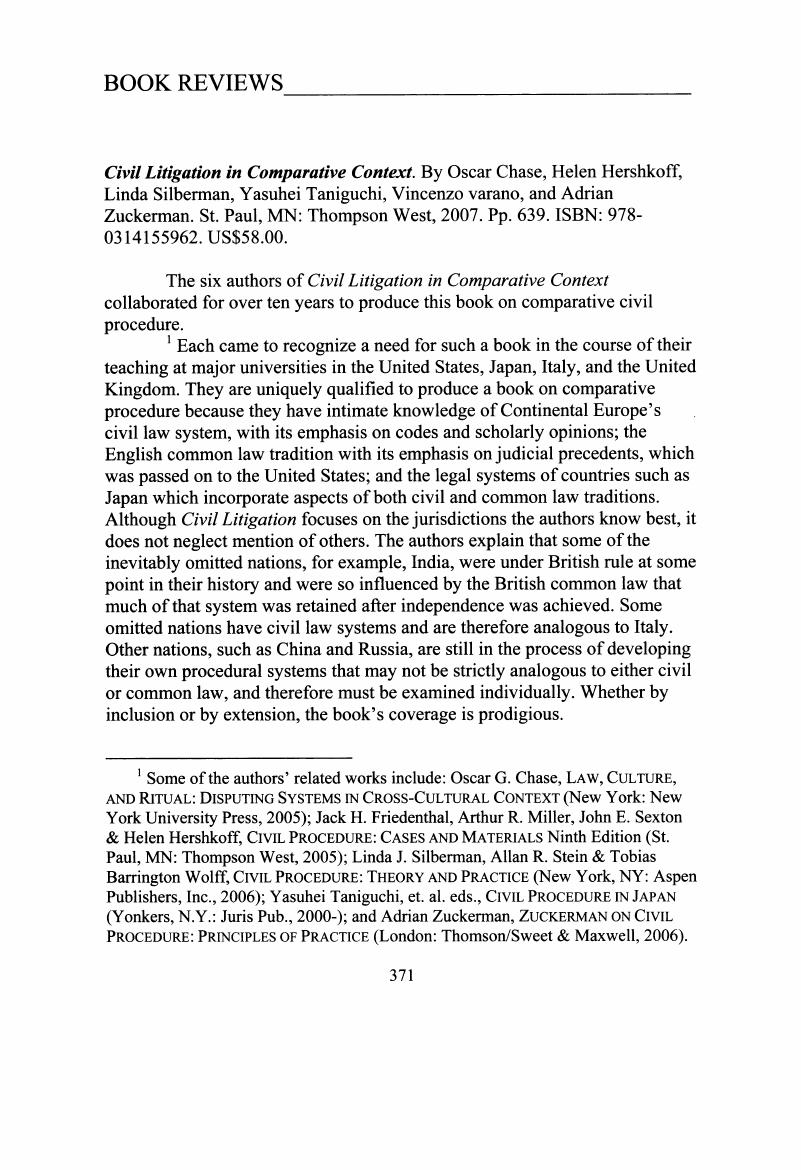No CrossRef data available.
Published online by Cambridge University Press: 28 February 2019

1 Some of the authors’ related works include: Oscar G. Chase, Law, Culture, and Ritual: Disputing Systems in Cross-Cultural Context (New York: New York University Press, 2005); Jack H. Friedenthal, Arthur R. Miller, John E. Sexton & Helen Hershkoff, Civil Procedure: Cases and Materials Ninth Edition (St. Paul, MN: Thompson West, 2005); Linda J. Silberman, Allan R. Stein & Tobias Barrington Wolff, Civil Procedure: Theory and Practice (New York, NY: Aspen Publishers, Inc., 2006); Yasuhei Taniguchi, et. al. eds., Civil Procedure in Japan (Yonkers, N.Y.: Juris Pub., 2000-); and Adrian Zuckerman, Zuckerman on Civil Procedure: Principles of Practice (London: Thomson/Sweet & Maxwell, 2006).Google Scholar
2 The role of judges reappears in chapter 5 where it is noted that although American judges appear to have more power to make law than their civil law counterparts, many commentators agree that “the most pronounced trend in procedure all over the world has been the growth of judicial discretionary authority.”Google Scholar
3 See http://www.unidroit.org/english/principles/civilprocedure/main.htm (last viewed Nov. 6, 2007).Google Scholar
4 For example, Alexis De Tocqueville's Democracy in America (1835) is quoted at page 133 in the context of constitutional adjudication in the United States.Google Scholar